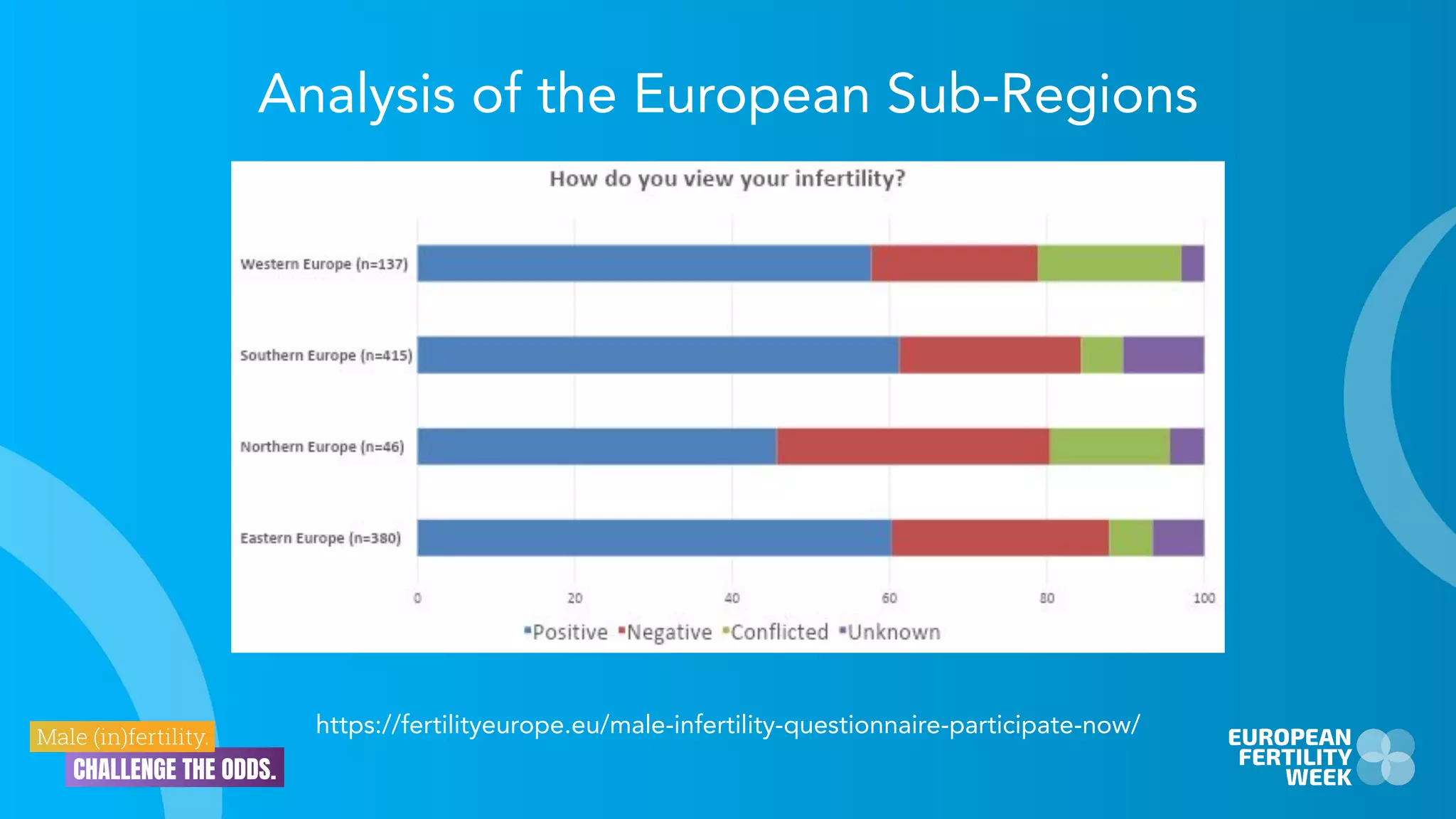This document summarizes an event organized by Fertility Europe on raising awareness of fertility issues and ensuring equitable access to fertility care across Europe. The event agenda included presentations on male infertility, panel discussions on increasing awareness of male fertility issues and addressing gaps in care, and discussions on ensuring equitable access to fertility screenings and treatment. Key topics included the need to better understand the male experience of infertility, challenges with lack of awareness and support resources, and the importance of recognizing infertility as a disease that all people have a right to treatment for without exception in Europe. The event highlighted ongoing efforts and opportunities for improving education, advocacy, and policies to address these issues.



















































